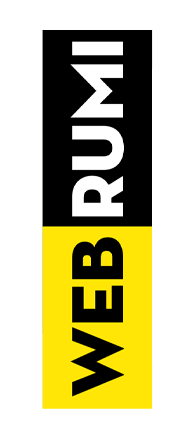Choosing the right content management system can feel like navigating a mase, with countless platforms to choose from, each promising to streamline your business’s digital presence. How do you know which one truly aligns with your vision? A CMS isn’t just a tool, it’s essentially the backbone of your website, influencing everything from how you manage content to how your brand engages with its audience. But the real challenge here is finding a platform that not only meets your current needs, but can also evolve with your business as it grows.
In a world of digital marketing and web design, where every flip matters, selecting the perfect CMS can make or break your business’s online success. It’s more than just about the ease of using or the cost, it’s about scalability, security, and customisation. With the right CMS, your business can become a seamless hub that supports your brand’s journey.
So what’s the secret to choosing the right one? It’s not as simple as picking a popular platform or the one with the most features. It’s about asking the right questions and understanding what will work best with your unique needs.

What is a Content Management System?
A CMS is essentially software that allows users to create, manage, and even modify digital content on websites without requiring advanced technical skills. Basically, it simplifies the process of website management by providing tools that make publishing articles, uploading images, and organising site structures straightforward.The system typically consists of two components, the Content Management Application, which is also known as CMA, which enables users to manage content and Content Delivery Application, CDA, which ensures that content is delivered seamlessly to website visitors. A well-chosen CMS serves as the backbone of your website, streamlining workflows and enhancing collaboration across teams.
When selecting a CMS for your business, it’s crucial to evaluate your specific needs and priorities. Start by identifying what type of content you’ll be managing, whether it’s blog posts, e-commerce products, or multimedia files. Understanding your requirements will help you narrow down options that align with your objectives. Additionally, consider how many users will need access to the system, and whether it integrates with your existing technologies. Scalability is another key factor. As your business grows, your CMS should be able to accommodate increased traffic and content volume without compromising the performance.
Ease of use is one of the most important aspects of any CMS. A user-friendly platform ensures that even non-technical team members can manage content efficiently without extensive training. Looking for systems with intuitive dashboards and clear navigation that simplify day-to-day operations.
Customisation and flexibility are also vital. Every business has unique needs. So choose a CMS that offers customisable design options, plugins for added functionality, and integration capabilities with third-party tools like email marketing services or analytics platforms.
Search engine optimisation capabilities are essential for improving visibility in search engines. A good CMS should allow you to customise URLs, edit meta tags and descriptions easily, and integrate with SEO tools or plugins. Mobile responsiveness and fast loading times are equally important for ranking higher in search results. Security features must also be a priority when choosing a CMS. Evaluate platforms based on their ability to provide regular updates and patches. SSL support is essential for secure connections, user authentication controls, and data backup options. Cost is another critical consideration when selecting a CMS. While constraints are important, focus on value rather than cost alone.
Analyse initial setup fees, maintenance costs, expenses for plugins or third-party integration, and potential ROI from improved efficiency and SEO performance. A well-chosen CMS can deliver significant returns while streamlining operations and enhancing user experience.
Some Popular CMS Platforms
Several popular CMS platforms cater to different business needs. WordPress is widely recognised for its versatility and extensive plugin library, making it an excellent choice for businesses seeking customisation options. However, it requires regular updates to maintain security. Drupal offers unparalleled flexibility and scalability, but may have a steeper learning curve due to its complexity. Shopify is ideal for e-commerce businesses, thanks to its user-friendly interface and robust support system. However, it comes with transaction fees that may add up over time. Magento is another powerful option for large-scale e-commerce sites, but requires significant resources for setup and maintenance. Joomla strikes a balance between ease of use and customisation, but has fewer plugins compared to WordPress. Each platform has its strengths and weaknesses; therefore, it’s essential to assess which one aligns best with your business model before making a decision.
The Importance Of Vendor Support
The availability of vendor support can significantly impact your experience with CMS platforms. Reliable customer service ensures smooth implementation and ongoing assistance whenever issues arise. Comprehensive documentation and tutorials can help users navigate the system effectively, while active user forums provide valuable resources for troubleshooting common problems.
An engaged community around the platform fosters innovation by sharing ideas on how to maximise its potential. When evaluating vendor support options, prioritise those offering 24-7 assistance along with detailed guides that simplify complex processes.
Integration Capabilities
Modern businesses can rely on multiple systems working together seamlessly. Your chosen CMS should integrate effortlessly with existing tools like CRM platforms or email marketing services. APIs enable deeper customisation while allowing personalised user experiences, such as targeted recommendations or push notifications based on visitor behavior.
Conclusion
Choosing the right content management system is an essential step in building a successful online presence that drives engagement and growth for your business. WebRoomie specialises in helping businesses navigate this critical decision by offering tailored solutions designed according to their unique needs. With expertise in digital marketing strategies coupled with an understanding of web design intricacies, they empower brands through seamless integration with cutting-edge technologies like advanced CMS platforms.





Leave A Comment